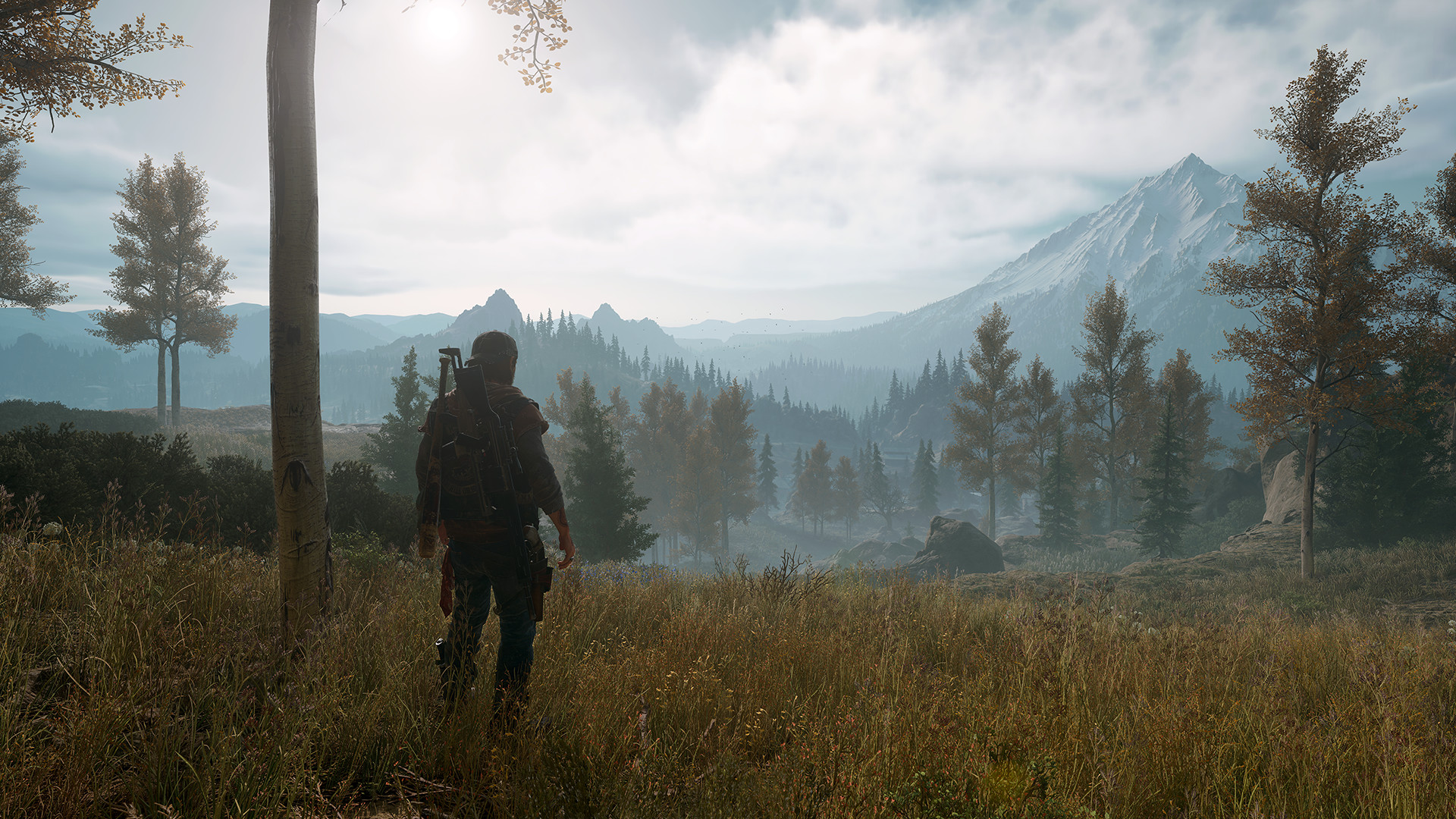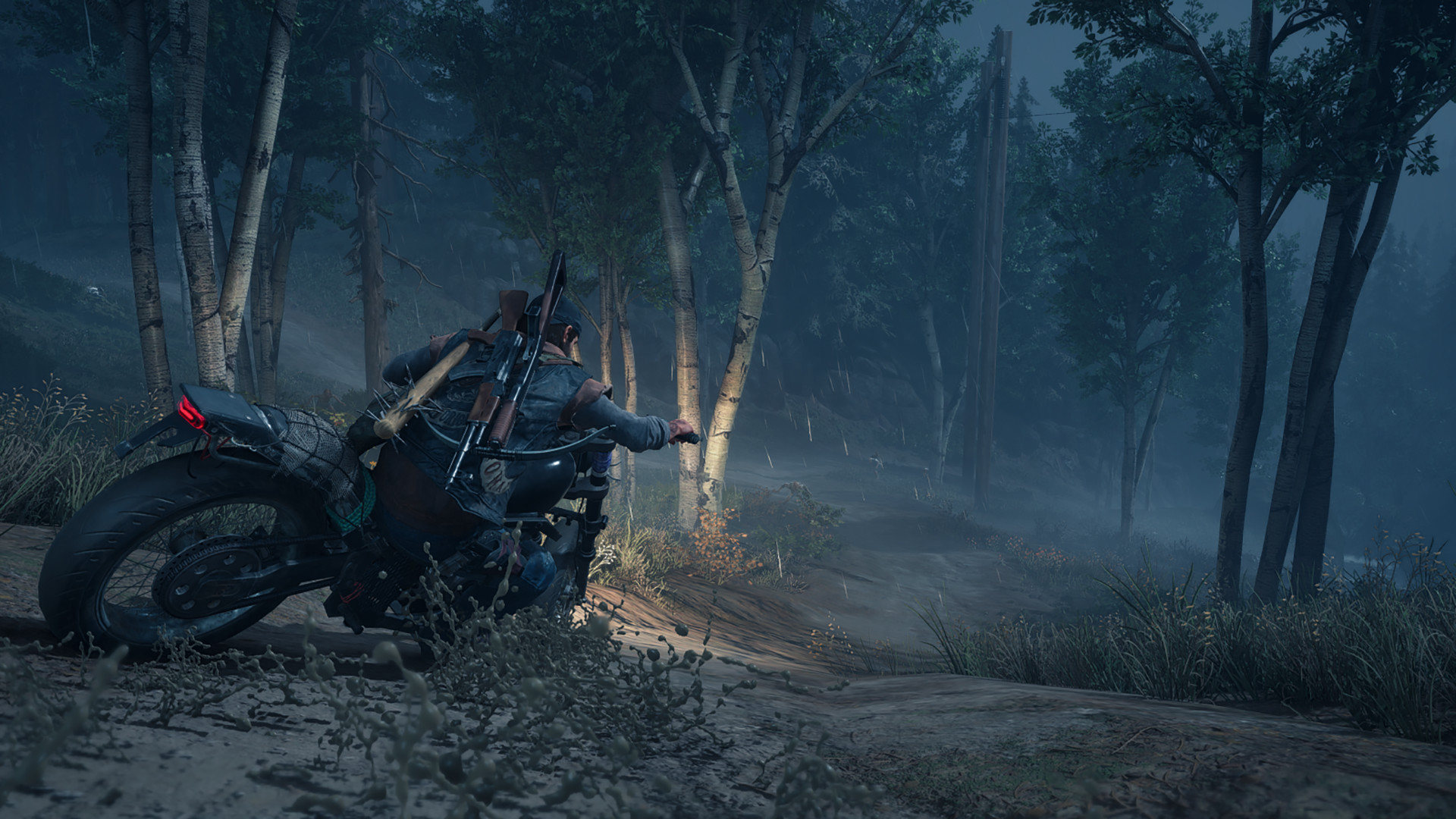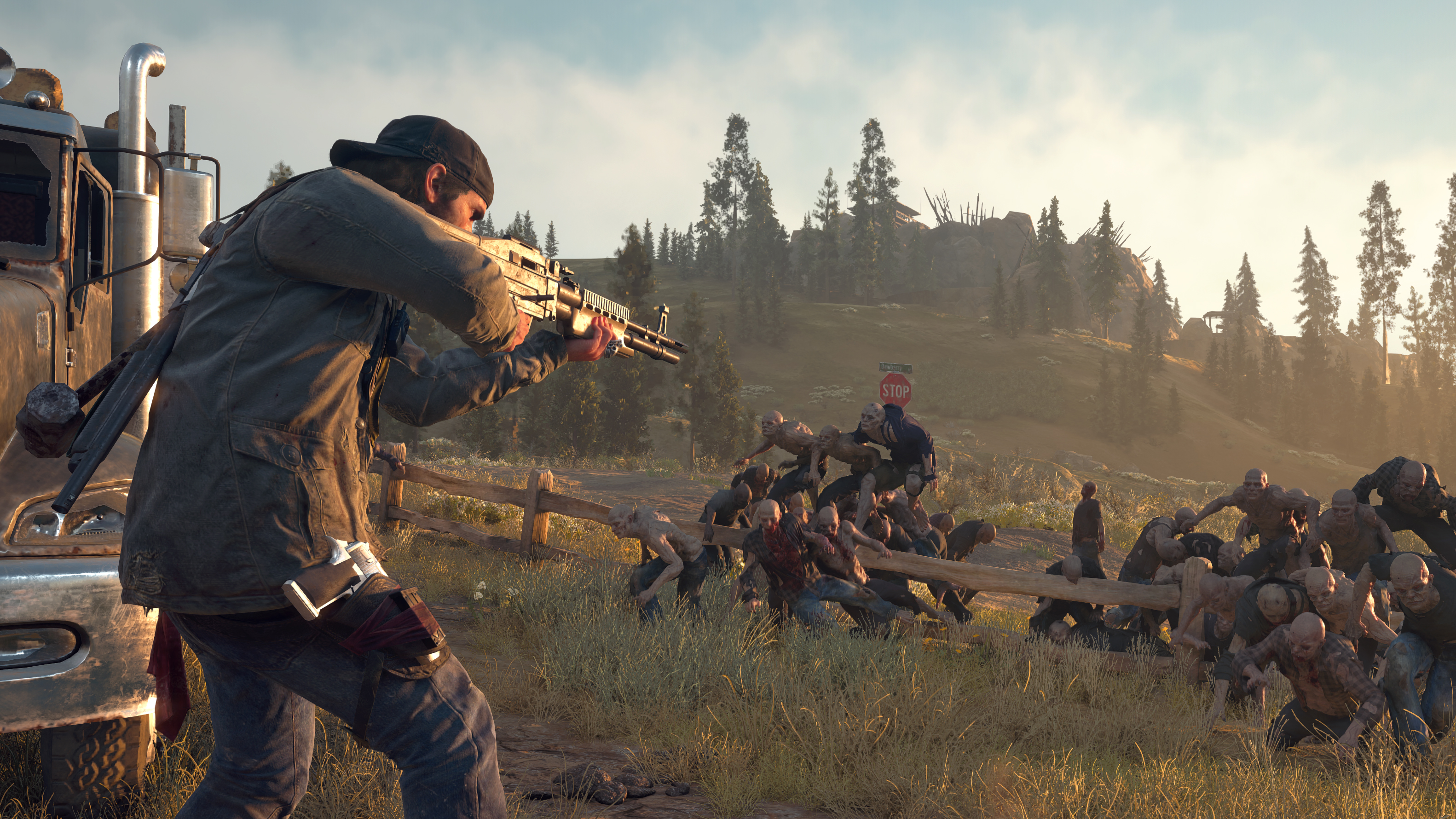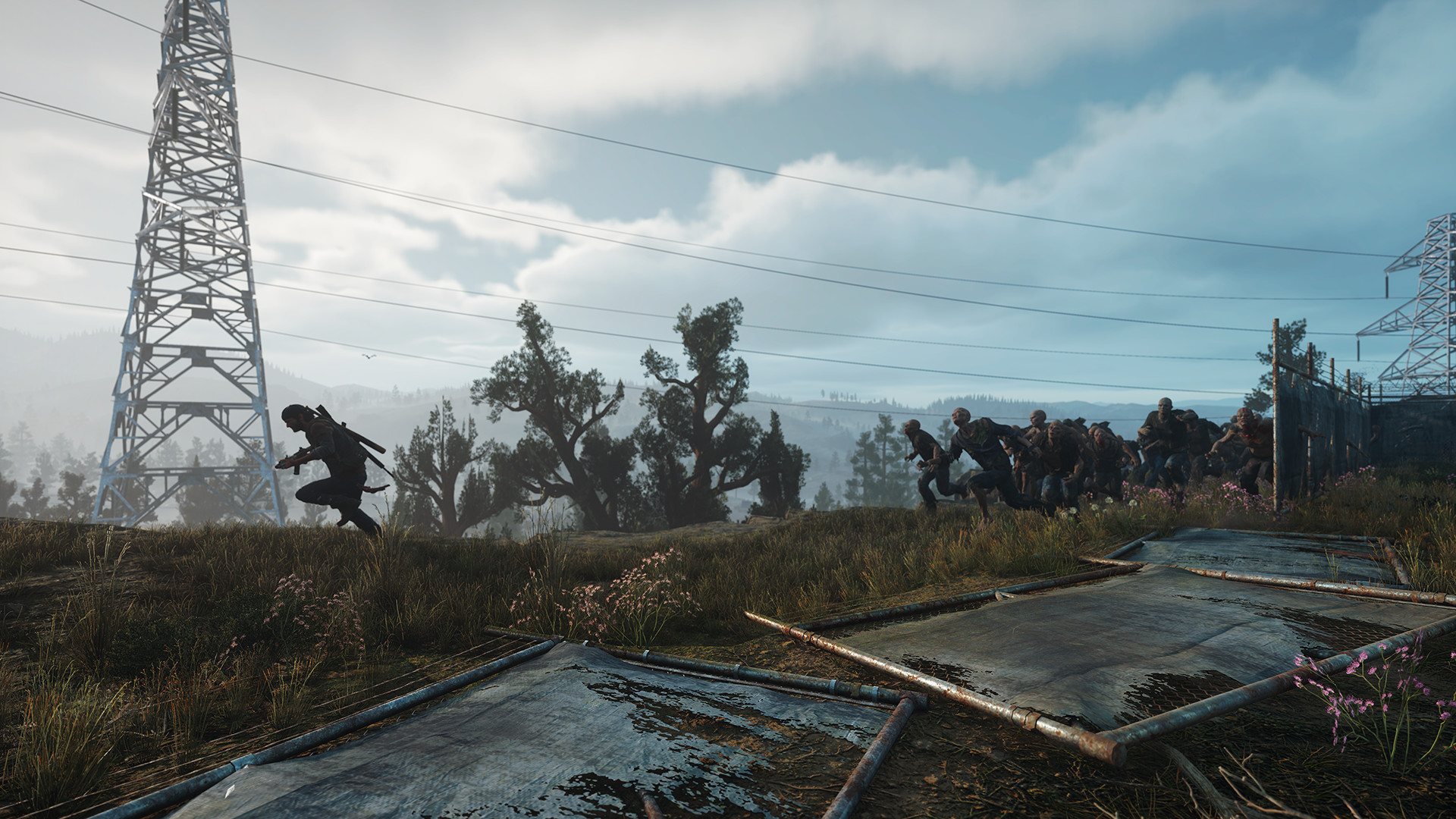
During an interview earlier this week, Days Gone’s creative director and writer claimed that players can’t complain that the post-apocalyptic, action-adventure isn’t getting a sequel if they didn’t pay full price for the title at launch.
In an interview with game designer David Jaffe, for Jaffe’s YouTube show (via VGC), Days Gone lead John Garvin was asked whether he had seen a “meaningful uptick of engagement” with Days Gone, following the game’s inclusion as part of the PS Plus Collection on PS5.
“I do have an opinion on something that your audience may find of interest, and it might piss some of them off,” Garvin said. “If you love a game, buy it at fucking full price. I can’t tell you how many times I’ve seen gamers say ‘yeah, I got that on sale, I got it through PS Plus, whatever’”.
When Jaffe rebutted, “But how do you know you love a game until you’ve played it?”, Garvin replied: “I’m just saying, you don’t, but don’t complain if a game doesn’t get a sequel if it wasn’t supported at launch. It’s like, God of War got whatever number millions of sales at launch and, you know, Days Gone didn’t. [I’m] just speaking for me personally as a developer, I don’t work for Sony, I don’t know what the numbers are.”
“I think the uptick in engagement with the game is not as important as, did you buy the game at full price? Because if you did, then that’s supporting the developers directly,” Garvin continued.
While Garvin’s frustration is, to a degree, understandable, it’s not players’ call on whether a game gets a sequel and his comments ignore the importance of services like PS Plus.
- PlayStation Now vs Xbox Game Pass
- Best PS5 games: the most essential PlayStation 5 titles
- The cheapest PlayStation Plus prices for memberships
Resting on its laurels

It’s easier said than done to simply say that players should be buying games at full price. As Jaffe pointed out, players don’t know if they love a game until they’ve gotten their hands on it. For new IPs, like Days Gone, it’s an awfully big gamble for players to put their hard-earned money (at launch around £40/$50) on the line for a game they may not enjoy.
Get daily insight, inspiration and deals in your inbox
Sign up for breaking news, reviews, opinion, top tech deals, and more.
"It’s up to Sony’s marketing to sell that game, to assure players that this brand new IP is something they actually want to spend money on. If that goal isn’t achieved, then it’s not on the player."
The burden of encouraging players to want to play new games falls on the company publishing it, in this case Sony. It’s up to Sony’s marketing to sell that game, to assure players that this brand new IP is something they actually want to spend money on. If that goal isn’t achieved, then it’s not on the player.
The issue arises if Sony feels that a game being a first-party PlayStation title is enough to sell it. After all, Sony is the master of first-party narrative games releasing critically-acclaimed titles such as God of War, The Last of Us and Uncharted. But to assume that this strong back catalog is enough to entice fans is a mistake, the game needs to be good and, unfortunately, Days Gone didn’t quite hit the mark compared to Sony’s other offerings.
Days Gone had mixed reviews at launch, with some loving the zombie, action-adventure and others, such as myself, finding the world empty and the narrative dull. There was nothing particularly unique about Days Gone (aside from a gnarly motorcycle), and it felt like yet another PlayStation zombie game - albeit with some cool enemy horde tech. Following on from, and to a degree contending with, Sony’s critically-acclaimed The Last of Us, Days Gone always had a tough fight ahead of it. While Ghost of Tsushima similarly received a mixed response, its historical samurai element at least made it distinctive from other Sony offers. Regardless of whether you loved or hated it, it’s hard to deny that Days Gone didn’t meet the standards we had come to expect from Sony.
It’s possible that this mixed bag of reviews somewhat played a part in fewer players deciding to pick up the game at launch, after all not everyone has the cash to splash on a game that seems like a gamble.
So it’s not surprising that many players waited until Days Gone landed on PS Plus, or until it was on sale. These provide a more accessible way for players to try out a new IP, before they begin spending their money on it.
An out-of-date method

Blindly buying AAA games is becoming an increasingly more risky practice and publishers are beginning to recognize this. Instead a ‘try before you buy’ approach is something we’re seeing Sony taking more with the PS5 generation. After all, PS5 games at full price are even more than they were on PS4 (around £50/$60). To release a new IP and expect people to blindly pay that amount of money is absurd.
Seemingly knowing this, Sony has offered some premium PS5 exclusive games on PS Plus from launch, most notably Destruction AllStars. Particularly with online multiplayer games, penetrative pricing is key to get fans interested and spreading the word, before increasing the price - in this case, going from free for PS Plus members to full price after a few months. Without this, Destruction Allstars likely would have struggled. Who wants to pay that amount on a game that they might hate? And who can convince their friends to take the same gamble so they can play together?
While PS Plus still has a pay barrier, free demos are becoming increasingly more popular this generation - potentially due to the money players are expected to put on the table. Capcom has released multiple demos for Resident Evil Village, giving players the chance to play the latest entry before they shell out full price.
Most notably Square Enix took a similar approach with Outriders, which released an early demo for players to try out. The demo received a mixed reception, but it allowed Square to lay its cards on the table: here is what your money is being spent on. It’s a bold move that seemingly paid off for Square. The game’s inclusion on Xbox Game Pass only served to strengthen its popularity, in spite of bugs and crashes.
The release of Outriders highlighted for me the strength that Microsoft has over Sony: Xbox Game Pass. Xbox Game Pass offers players who want to try out a game but not pay full price, the chance to do that, without having to pay extra on top of their subscription. It lets players try games they were maybe uncertain about, with many first-party games launching on Game Pass on day one.
While PS Plus Collection does this too, it is exclusive to PS5, its offering is significantly smaller and it doesn’t include any new releases. But if Sony took a similar approach to Microsoft and improved PS Now or PS Plus massively, then perhaps games like Days Gone could have been more successful. Though, John Garvin may not have liked that either...
All isn't lost

Instead of putting the blame on those who engaged with Days Gone, but not ‘in the right way’, it’s Sony who should be bearing the brunt of Garvin’s frustration. It’s Sony who allegedly rejected Days Gone 2, Sony that reshuffled Japan Studio, Sony that allegedly moved The Last of Us remake development to Naughty Dog.
"For Garvin to blame players buying the game on sale or playing on PS Plus for a lack of sequel is absurd and it’s a snub to those who - without these avenues - may never have played the game at all."
While Sony seems to have realized this generation that players won’t be as quick to part with their cash, Days Gone has benefited from this new service-focused approach - albeit in engagement rather than full-price sales.
For Garvin to blame players buying the game on sale or playing on PS Plus for a lack of sequel is absurd and it’s a snub to those who - without these avenues - may never have played the game at all. What’s more, a resurgence in engagement could open doors for the franchise in the future - even if Sony has allegedly shot down a sequel right now.
Sea of Thieves is the perfect example of how a subscription service can propel a game. In the beginning, players had to pay full price to play Rare’s open-world pirate adventure. Given that Sea of Thieves is most enjoyable when played with friends, it presented a huge barrier to players- similar to Destruction Allstars and Outriders. However, when Microsoft chose to release Sea of Thieves on its, at the time, fledgling Xbox Game Pass, the game’s popularity surged.
Sea of Thieves remains relevant and Game Pass no doubt had a hand in that. Without Game Pass, it’s entirely possible that Microsoft may have let Sea of Thieves sink. So while Garvin appears to dismiss PS Plus players, he isn’t acknowledging that PS Plus could be the service that means we could see a Days Gone revival in the future, if not a full sequel perhaps a more affordable to produce spin-off in the vein of Uncharted: The Lost Legacy
While the prospect of another Days Gone game looks unlikely right now, don’t rule out the power of PS Plus to find an audience that had previously been shopping elsewhere.
- Best PS4 games: the most essential PlayStation 4 titles
An award-winning games journalist, with seven years of experience in games journalism and a degree in journalism from City University, London, Vic brings experience from IGN, Eurogamer, The Telegraph, VG247, Dot Esports and more to the TechRadar table. You may have even heard her on the radio or speaking on a panel, as she’s previously appeared on BBC Radio 4, BBC Radio 5, BBC Radio Ulster and more. Not only is Vic passionate about games, but she's appeared on both panels and podcasts to discuss mental health awareness. Make sure to follow her on Twitter for more.